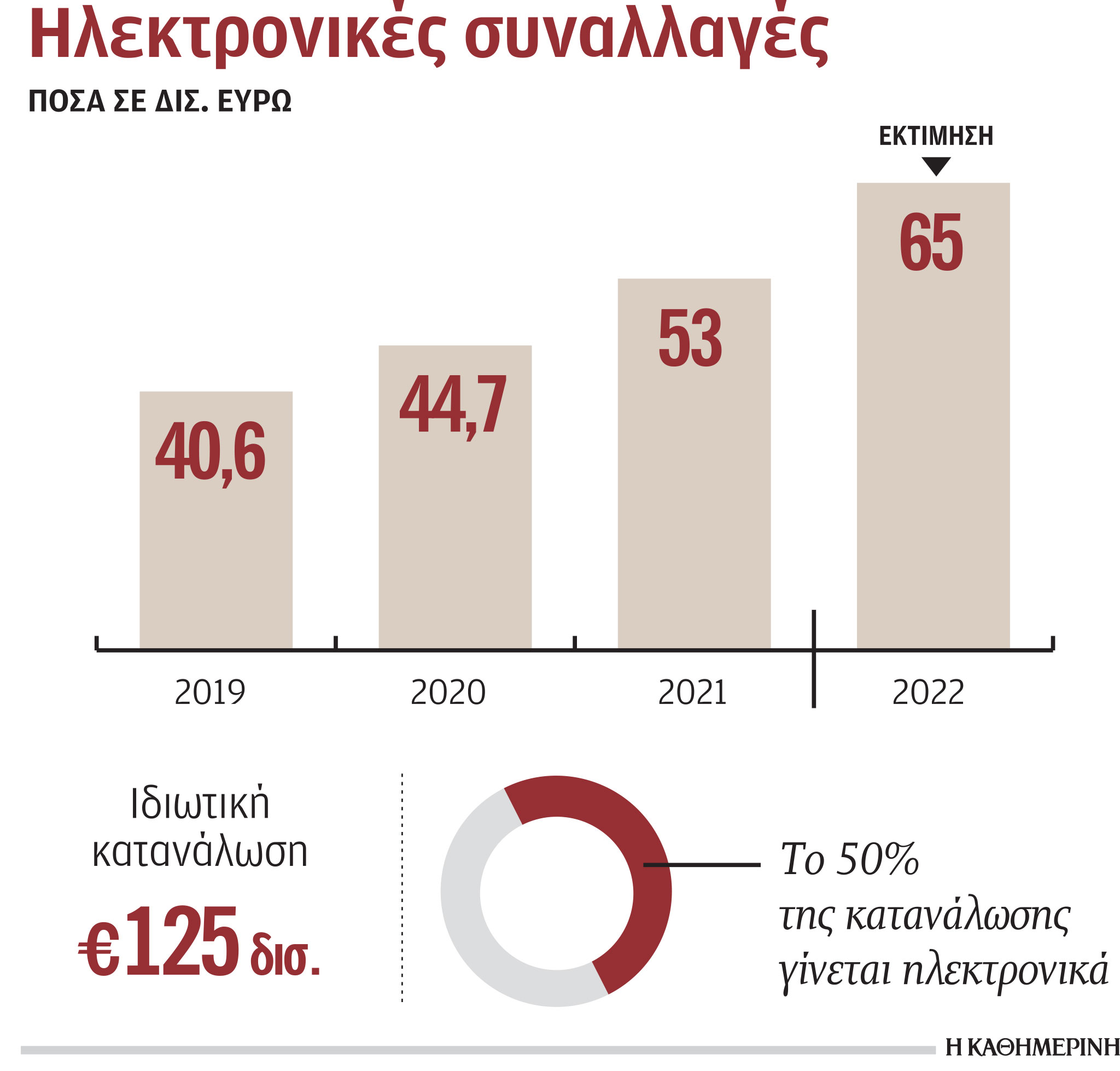
This year, the state treasury will be replenished with more than 500 million euros by increasing electronic transactions. According to him Ministry of Financeonly the increase in electronic transactions, that is, without taking into account the good progress of tourism, leads to its limitation tax avoidance and, consequently, an increase government revenue. At the same time, there is a strong possibility of POS and cash registers spreading throughout the economy. However, there are two trends in the Treasury: some are pushing for expansion, while others are afraid of political costs. In fact, it was proposed to reduce the limit on the use of cash in both consumer and inter-corporate transactions. Today the limit is 500 euros. That is, in excess of this amount, transactions between individuals – consumers and legal entities (for the sale of goods or the provision of services) must be made exclusively using a card or other electronic means of payment.
According to the data available to the Ministry of Finance, electronic transactions have led to an increase in VAT receipts and a decrease in the turnover of “black” money. In fact, according to financial staff estimates, this amount will increase significantly with the connection of cash registers to POS from 2023, but with the obligation to transfer transactions (receipts) from the end of October until AADE. For those who do not, in fact, there are heavy fines and business suspension for up to 96 hours.
According to the ministry, electronic transactions increased by 62.5% compared to 2019. Especially:
• In 2019, purchases by card or other electronic means reached €40.6 billion.
• In 2020, when the pandemic crisis emerged, by €44.7 billion.
• In 2021, when the economy was closed for 5 months, the volume of electronic transactions reached 53 billion euros.
• It is estimated that in 2022 they will increase by 25-30% and reach the level of more than 65 billion euros.
According to statistics, private consumption last year reached 125 billion euros, which shows that half of the transactions, i.e. 50% is carried out using cards, while in other countries – 80%.
The Treasury Department is considering spreading POS and cash registers throughout the economy.
With extension POS it is assumed that in all economic activity this percentage will increase significantly. For example, today there is no obligation to have POS in gyms, in parking lots, which in fact do not have the obligation to maintain a cash register. That is, those who want to use the handwritten system. There are also no POS obligations at kiosks, taxis, cinemas and theaters, among others. It is noteworthy that even today there are professions that do not use cash registers in the services they offer, for example, tailors.
Although the Treasury’s plan before the pandemic was to expand POS to the entire economy, this has weakened and, according to a Treasury agent, “the time has come to expand it to all economic activity.” “.
Surcharge GUARDIANSHIP on the map
The OPECA allowance will be provided to the card, from which the beneficiaries will be able to withdraw only 50% in cash. The remaining amount should be spent online, i.e. by purchasing through POS, e-banking, etc.
According to the Ministry of Finance, the total amount of benefits is 3 billion euros. The goal is for at least half of them to be spent by debtors through electronic transactions.
Tax Compliance
New technologies and an increase in electronic transactions have also led to legal compliance. At the same time, now those businesses that are not aware of taxes (and for this they should not be indebted to the Greek state) cannot join programs such as the NSRF, as well as any assistance program. According to the latest available data, VAT payments from enterprises to the tax office show a significant increase. In particular, in July timely payments reached 85.19% of the total amount of VAT payable.
In particular, out of 1.368 billion euros of VAT, debtors paid 1.164 billion euros on time. On-time corporate income tax payments reached 90.38%, while ENFIA’s payment performance (compared to previous years) is also particularly positive, rising to 77.59% from 73.9% at the end of 2021.
Source: Kathimerini
Lori Barajas is an accomplished journalist, known for her insightful and thought-provoking writing on economy. She currently works as a writer at 247 news reel. With a passion for understanding the economy, Lori’s writing delves deep into the financial issues that matter most, providing readers with a unique perspective on current events.